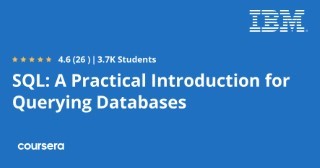Network Security & Database Vulnerabilities
Gain a basic understanding of network security and database vulnerabilities with this comprehensive course. Learn about TCP/IP, OSI Framework, routing basics, and more. Explore database vulnerabilities and tools for researching vulnerabilities in SQL Injection, Oracle, Mongo, and Couch. Understand various security breach types and industry standards. Perfect for those interested in cybersecurity or aspiring Jr Cybersecurity Analysts.
This course gives you the background needed to understand basic network security. You will learn the about Local Area Networks, TCP/IP, the OSI Framework and routing basics. You will learn how networking affects security systems within an organization. You will learn the network components that guard an organization from cybersecurity attacks.
In addition to networking, you will learn about database vulnerabilities and the tools/knowledge needed to research a database vulnerability for a variety of databases including SQL Injection, Oracle, Mongo and Couch.
You will learn about various security breach types associated with databases and organizations that define standards and provide tools for cybersecurity professionals.
This course is intended for anyone who wants to gain a basic understanding of Network Security/Database Vulnerabilities or as the fourth course in a series of courses to acquire the skills to work in the Cybersecurity field as a Jr Cybersecurity Analyst.
What you will learn
TCP/IP Framework
In this module, you will learn about the TCP/IP Framework, Ethernet and Lan Networks, and the basics around routing and switching. You will also learn about address translation and the basic differences between Intrusion Detection and Intrusion Prevention Systems. Finally, you will learn about network packets.
Basics of IP Addressing and the OSI Model
In this module, you will learn the basics of IP Addressing and how it affects the network traffic routing. You will about application and transport protocols. You will learn about firewalls and additional information in regards to Intrusion Detection and Intrusion prevention systems. Finally, you will learn the concepts of high availability and clustering.
Introduction to Databases
In this module you will learn to define data source and model types as well as types of data. You will also review how to use best practices to secure your organizations data. Finally, you will get an in depth look at use cases around an example of a Data Protection solution, IBM Security Guardium.
Deep Dive – Injection Vulnerability
In this module you will hear an IBM Subject Matter expert discuss the common vulnerability of Injection. You will learn the basics around OS Command Injection and SQL Injection.
User Reviews
Be the first to review “Network Security & Database Vulnerabilities”
You must be logged in to post a review.







There are no reviews yet.